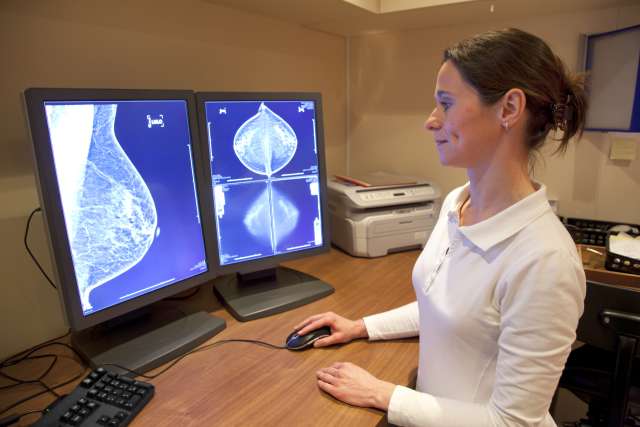As with any patient who has a serious illness, someone newly diagnosed with pancreatic cancer faces the prospect of sudden and necessary changes to their lifestyle, including that most basic of human functions: what they eat.
Rather than telling patients what they can no longer eat, dietary specialists at the often begin by educating them about some of the healthier foods they can add to their diets.
“I encourage patients to decrease red meats, processed meats and fried food, but really try to focus on what they can eat as opposed to what they can’t,” said Emma Veilleux, RDN, senior dietitian at the Simms/Mann Center. “Encouraging them to select from a variety of healthy options and tweaking portion sizes can have more of an impact. Guiding patients toward making choices for healthier types of fat and helping them learn the difference between refined carbohydrates and complex carbs, which contain beneficial fiber, is critical.”
Different diets for different symptoms
There are different forms of pancreatic cancer, each with its own symptoms.
, a senior dietitian at the , explained that the diet for a patient with pancreatic cancer likely will be adjusted according to their symptoms rather than the type of cancer they have.
“From the start, we monitor for exocrine pancreatic insufficiency, blood-glucose levels and malnutrition at all visits with patients,” Yaceczko said. “We check to see if our patients are experiencing certain symptoms related to food because then we’ll probably need to modify their diet as well as start pancreatic-enzyme-replacement therapy to replace the digestive enzymes the pancreas may not be producing enough of now. This helps ensure patients are able to break down and absorb the food they eat.”
For people with pancreatic cancer, there is no one-size-fits-all diet, Veilleux explained. While some foods may benefit one patient, those same foods might exacerbate symptoms in another.
“I listen to my patients to find out what they have been trying that hasn’t worked out,” Veilleux said. “Often, we’re troubleshooting diets that they have been trying for months. If, for example, one of their symptoms is weight loss, we try to develop a schedule to remind them to eat at certain times throughout the day to ensure they are getting the nutrition they need.”
Recommended foods and ingredients
While many nutritious foods are available to patients with pancreatic cancer, Yaceczko cautions that there are some foods they should avoid.
“Foods like red meat or that are fried or greasy are very difficult for people with this type of diagnosis, and they can potentially increase and/or worsen the symptoms they experience,” she said.
Yaceczko and Veilleux offered a brief list of foods they recommend to add and to avoid:
Add:
- Low sugar, organic smoothies
- Nut butters (almond, cashew)
- Beans
- Soy products such as tofu
Avoid:
- High-fat meats and cheeses
- Foods containing high fructose corn syrup
- Caffeinated drinks
- Spicy foods containing onions or hot peppers





